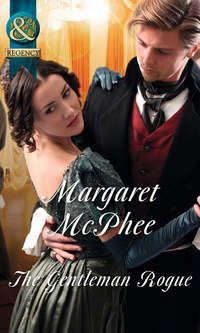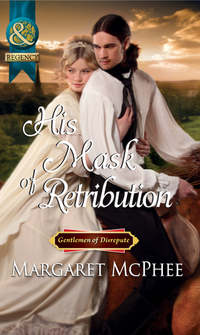
Полная версия
A Regency Captain's Prize: The Captain's Forbidden Miss / His Mask of Retribution
He stood by the window in the dilapidated cottage that was situated at the foot of the road that led up to the monastery. A few men still drifted around the place. He could hear the soft murmur of their voices and see their dark shapes by the light of the fires. Soon they would be bedding down for the night, just as the thousands of men in the canonments around Santarém not so far away to the south would be doing. Above, the sky was a spread of deep, dark, inky blue studded with the brilliance of diamond stars. And he knew that the temperature was dropping and that the cold would be biting. Tomorrow General Foy would lead them across the mountains towards Ciudad Rodrigo and they would leave behind the ruined monastery at Telemos and the dead riflemen and Mallington. He heard Lamont move behind him.
‘Your coffee, Pierre.’
He accepted the tin mug from his sergeant’s hands. ‘Thank you.’ The brown liquid was bitter, but warming. ‘Has Major La Roque sent for me yet?’
‘No.’ Lamont smiled, revealing his crooked teeth. ‘He is too busy with his dinner and his drink.’
‘He is making me wait until morning then,’ said Dammartin, ‘to haul me over the coals.’
Lamont shrugged his shoulders. He was a small, wiry man with eyes so dark as to appear black. His skin was lined and weatherbeaten, his hair a dark, grizzled grey. Lamont knew how to handle a musket better than any man in Dammartin’s company. Despite the fact he had grown up the son of a fishmonger and Dammartin the son of a distinguished military major, the two had become close friends.
‘The riflemen refused the option of surrender. They were like demons. Never before have I seen the British fight until there is not a man left alive. It was no easy task to overcome them. The Major must know that.’
Dammartin met his gaze, knowing that his sergeant understood very well that the fight had been unnecessarily prolonged by Dammartin’s refusal to storm the monastery until the last. ‘The Major will only be concerned with the delay this has cost us. General Foy will not be pleased. One day of marching and we do not even make it past Abrantes.’
Lamont sniffed and wiped his nose with the back of his hand. ‘The cost was worth it. You wanted the English Lieutenant Colonel alive so that you might watch him die.’
Dammartin said nothing.
‘You have waited a long time to kill him, and now he is dead.’
‘But not by my hand.’
‘Does it make any difference? He is dead just the same.’
‘I wanted to look into his eyes while I killed him. I wanted to watch his reaction when I told him who I was, to see that he understood, to feel his fear.’
‘And today that is what you did. This Mallington looked upon you with his dying breath. It is done, Captain. Your father is avenged.’
The line of Dammartin’s mouth was hard. He said nothing. It was true that Dammartin had looked into Mallington’s face and revealed his identity. But thereafter nothing had been as the French Captain anticipated, and he was left feeling cheated.
Lamont fetched his own battered tin mug and sat down on his pack by the fire he had lit on the hearth. Steam rose in wisps from the steaming-hot coffee. Lamont wrapped his hands around the mug, seemingly impervious to the scald of the heat, and gazed into the flames. ‘Perhaps my ears deceived me, Captain, but I thought the Englishman said the girl was his daughter.’
‘He did.’
‘Sacré bleu!’ cursed the Sergeant. ‘It shows the nature of this Lieutenant Colonel Mallington. Only a crazy Englishman would bring his daughter with him to war.’ The Sergeant drilled a forefinger against the side of his head. ‘Crazy.’
‘So it would seem,’ said Dammartin, remembering the image of the girl standing alone and seemingly unafraid before the men of the 8th Dragoons to defend her father.
‘She is so young, so fragile looking. It does not seem possible that she could have survived this hell of a country.’
‘So fragile that her bullets are lodged in half our men,’ said Dammartin sourly.
‘That is the truth,’ Lamont said soberly, and took a gulp of his coffee.
Dammartin retrieved a small, silver hip flask from his pocket and loosened the cap. ‘Brandy? To keep the damp from your bones tonight.’
Lamont gave a grin and nodded, holding the still-steaming tin mug up.
Dammartin poured a liberal dousing of the amber liquid into the proffered mug before doing likewise with his own. ‘Why should Mallington have sacrificed his men over a deserted village in the middle of nowhere? It makes no sense. Wellington’s forces are all down at the lines of Torres Vedras and Lisbon. What was Mallington even doing up here?’
The sergeant shrugged. ‘A scouting party? They were riflemen after all.’
‘Perhaps—’ Dammartin sipped his coffee ‘—Mademoiselle Mallington may be able to shed some light on her father’s actions.’
Lamont glanced up quickly at the young captain. ‘You mean to interrogate her?’
‘She is the only one still alive. Who else can tell us?’ Dammartin’s expression was unyielding.
‘The English Lieutenant Colonel gave her into your care,’ protested Lamont. ‘She’s only a girl.’
Dammartin glared unconvinced.
‘She’s the daughter of a gentleman, and today she watched her father die.’
‘She is the daughter of a scoundrel, and an English scoundrel at that,’ Dammartin corrected. ‘Shehandled that rifle as good as any man and she is not to be trusted. Where is Mademoiselle Mallington now?’
‘Locked in the cellar below.’
Dammartin drained his mug and set it down. ‘Then it would seem that I have work to do this evening.’
Lamont stopped nursing his coffee to look at Dammartin. ‘I pray, my friend and captain, that you are certain as to what you are about to do.’
‘Never more so,’ said Dammartin, and walked from the room.
Chapter Two
Josie sat perched on one of the dusty wooden crates, hugging her arms around her body, trying to keep out the worst of the damp chill. Wherever she looked, it seemed that she saw not the darkness of the cellar in which the French soldiers had locked her, but her father’s face so pale and still in death, the blood seeping from his mouth to stain his lips and dribble down his chin. Even when she squeezed her eyes shut, she could not dislodge that image. All around in the dulled silence she heard again the crack and bang of rifles and muskets and the cries of dying men. She stoppered her hands to her ears, trying to block out the terrible sounds, but it did not make any difference, no matter how hard she pressed.
That morning she had been part of a section of twenty-five men and three women. She had collected the water from the spring behind the monastery and boiled it up to make her father’s tea, taking the place of his batman for that short time as was her habit. They had laughed and drunk the brew and eaten the porridge oats that were so warming against the cold.
She remembered just those few hours ago in the afternoon when her father had told her of the column of Frenchmen marching through these hills and how he would have to go in closer to discover what they were about. Papa and a handful of men had gone, leaving Josie and the others in the old monastery, cooking up a stew of rabbit for the evening meal. But the small party’s return had been panicked and hurried, retreating from the pursuit of the French, scrambling to send their captain and first lieutenant with news to General Lord Wellington. And then Josie’s world had exploded. Papa would not laugh again. He was gone. They were all gone. All except Josie.
Even though she had seen their broken bodies and heard her father’s last drawn breath, she could not really believe that it was so. It was like some horrific nightmare from which she would awaken. None of it seemed real. Yet Josie knew that it was, and the knowledge curdled a sourness in her stomach. And still the images flashed before her eyes, like illustrations of Dante’s Inferno, and still the racket roared in her ears, and her throat tightened and her stomach revolted, and she stumbled through the blackness to the corner of the cellar and bent over to be as sick as a dog. Only when her stomach had been thoroughly emptied did she experience some respite from the torture.
She wiped her mouth on her handkerchief and steadied herself against the wall. Taking a deep breath, she felt her way back to the wooden box on which she had been seated.
It seemed that she sat there an eternity in the chilled darkness before the footfalls sounded: booted soles coming down the same stairs over which the French soldiers had dragged her. One set only, heading towards the cellar. Josie braced herself, stifling the fear that crept through her belly, and waited for what was to come. There was the scrape of metal as the key was turned in the lock, and the door was thrown open.
The light of the lantern dazzled her. She turned her face away, squinting her eyes. Then the lantern moved to the side; as her eyes began to adjust to the light, Josie found herself looking at the French captain whom her father had called Dammartin.
‘Mademoiselle Mallington,’ he said, and crossed the threshold into the cellar. His lantern illuminated the dark, dismal prison as he came to stand before her.
He seemed much bigger than she remembered. The dust and dirt had been brushed from the green of his jacket, and its red collar and cuffs stood bright and proud. The jacket’s single, central line of brass buttons gleamed within the flickering light. His white breeches met knee-high, black leather boots and, unlike the last time they had met, he was not wearing the brass helmet of the dragoons. Beneath the light of the lantern his hair was shorn short and looked as dark as his mood. She could see that the stare in his eyes was stony and the line of his mouth was hard and arrogant. In that, at least, her memory served her well.
‘Captain Dammartin.’ She got to her feet.
‘Sit down,’ he commanded in English.
She felt her hackles rise. There was something in the quietness of his tone that smacked of danger. She thought she would defy him, but it seemed in that moment that she heard again her father’s voice, Trust him, Josie. Trust him, when her every instinct screamed to do otherwise? She hesitated, torn between obeying her father and her own instinct.
He shrugged a nonchalant shoulder. ‘Stand, then, if you prefer. It makes no difference to me.’ There was a silence while he studied her, his eyes intense and scrutinising.
Josie’s heart was thrashing madly within her chest, but she made no show of her discomfort; she met his gaze and held it.
Each stared at the other in a contest of wills, as if to look away would be to admit weakness.
‘I have some questions that I wish to ask you,’ Dammartin said, still not breaking his gaze.
Josie felt her legs begin to shake and she wished that she had sat down, but she could not very well do so now. She curled her toes tight within her boots, and pressed her knees firmly together, tensing her muscles, forcing her legs to stay still. ‘As I have of you, sir.’
He did not even look surprised. ‘Then we shall take it in turns,’ he said. ‘Ladies first.’ And there was an emphasis on the word ‘ladies’ that suggested she was no such thing.
‘My father’s body… Is he… Have you…?’
‘Your father lies where he fell,’ he said harshly.
‘You have not given him a burial?’
‘Did Lieutenant Colonel Mallington take time to bury Frenchmen? Each side buries its own.’
‘In a battle situation, but this is different!’
‘Is it?’ he asked, and still their gazes held. ‘I was under the impression, mademoiselle, that we were engaged in battle this day.’
She averted her gaze down to the floor, suddenly afraid that she would betray the grief and pain and shock that threatened to overwhelm her. ‘Battle’ was too plain, too ordinary a word to describe what had taken place that day in the deserted village of Telemos. Twenty-seven lives had been lost, her father’s among them. Only when she knew that the weakness had passed did she glance back up at him. ‘But there is no one left to bury him.’
‘So it would seem.’
His answer seemed to echo between them.
‘I would request that you give him a decent burial.’
‘No.’
She felt her breath rush in a gasp of disbelief. ‘No?’
‘No,’ he affirmed.
She stared at him with angry, defiant eyes. ‘My father told me that you were an honourable man. It appears that he was grossly mistaken in his opinion.’
He raised an eyebrow at that, but said nothing.
‘You will leave him as carrion for wild animals to feed upon?’
‘It is the normal course of things upon a battlefield.’
She took a single step towards him, her fingers curled to fists by her sides. ‘You are despicable!’
‘You are the first to tell me so,’ he said.
She glared at him, seeing the dislike in his eyes, the hard determination in his mouth, this loathsome man to whom her father had entrusted her. ‘Then give me a spade and I will dig his grave myself.’
‘That is not possible, mademoiselle.’
Her mouth gaped at his refusal.
‘You wish Lieutenant Colonel Mallington’s body to be buried? It is a simple matter. It shall be done—’
‘But you said—’
‘It shall be done,’ he repeated, ‘as soon as you answer my questions.’
Fear prickled at the back of Josie’s neck, and trickled down her spine. She shivered, suspecting all too well the nature of the French captain’s questions. Carefully and deliberately, she fixed a bland expression upon her face and prayed for courage.
Pierre Dammartin watched the girl closely and knew then that he had not been wrong in his supposition. ‘So tell me, Mademoiselle Mallington, what were riflemen of the Fifth Battalion of the 60th Regiment doing in Telemos?’
‘I do not know.’
‘Come now, mademoiselle. I find that hard to believe.’
‘Why so? Surely you do not think my father would discuss such things with me? I assure you that it is not the done thing for British army officers to discuss their orders with their daughters.’
He smiled a small, tight smile at that. ‘But is it the done thing for British army officers to take their daughters on campaign with them? To have them fight alongside their men?’
‘It is not so unusual for officers to take their families, and as for fighting, I did so only at the end and out of necessity.’
He ignored her last comment. ‘What of your mother, where is she?’
The girl looked at him defiantly. ‘She is dead, sir.’
He said nothing. She was Mallington’s daughter. What had Mallington cared for Major Dammartin’s wife or family? The simple answer was nothing.
‘Tell me of your father’s men.’
‘There is nothing to tell.’ Her voice was light and fearless, almost taunting in its tone.
‘From where did you march?’
‘I cannot recall.’
He raised an eyebrow at that. The girl was either stupid or brave, and from what he had seen of Mademoiselle Mallington so far, he was willing to bet on the latter. ‘When did you arrive in Telemos?’
She glanced away. ‘A few days ago.’
‘Which day precisely?’
‘I cannot remember.’
‘Think harder, mademoiselle…’ he stepped closer, knowing that his proximity would intimidate her ‘…and I am sure that the answer will come to you.’
She took a step back. ‘It might have been Monday.’
She was lying. Everything about her proclaimed it to be so: the way her gaze flitted away before coming back to meet his too boldly, too defiantly; her posture; the flutter of her hands to touch nervously against her mouth.
‘Monday?’
‘Yes.’
‘How many men?’
‘I am not sure.’
‘Hazard a guess.’ Another step forward.
And again she edged back. ‘A hundred,’ she uttered with angry defiance.
‘A large number.’ He raised an eyebrow, knowing from the scattering of corpses that there had been nowhere near that number of men.
‘Yes.’
He watched her. ‘Did you ride with your father, or walk with the men, mademoiselle?’
She looked up at him, and he could see the puzzlement beneath the thick suspicion. There was the shortest of pauses before she said, ‘I rode a donkey, the same as the other women.’
‘You are telling me that the unmarried daughter of the Lieutenant Colonel rode with the company’s whores?’
‘They were not whores,’ she said hotly. ‘They were wives to the men.’
‘And your father was happy to leave you with them while he rode ahead with his officers on horseback? How very caring of him,’ he ridiculed.
‘Do not dare to judge him. You are not fit to speak his name!’
‘Only fit to kill the bastard,’ he murmured in French.
‘Scoundrel!’ she cursed him.
He smiled. ‘Who took the horses?’
All of the anger drained from her in an instant. She froze, caught unawares. He saw the tiny flicker of fear in her eyes and knew that he had guessed right.
‘I do not know what you mean,’ she said, but the words were measured and careful.
‘There are only two horses stabled at the monastery. Where are the others?’
Beneath the glow of the lantern her face paled. There was a pause. ‘We shot the others for food.’
‘Really,’ he said, ‘you shot the horses and left the donkeys?’
‘Yes.’ One hand slid to encase the other and she stood there facing him, with her head held high, as demure as any lady, and lying through her teeth.
‘I see.’ He watched her grip tighten until the knuckles shone white. He looked directly into her eyes and stepped closer until only the lantern separated them.
She tried to back away, but her legs caught against the wooden crate positioned behind her and she would have fallen had he not steadied her. Quite deliberately, he left his hand where it was, curled around her upper arm.
‘You would do better to tell me the truth, Mademoiselle Mallington,’ he said quietly. He saw the pulse jump in her neck, could almost hear the skittering thud of her heart within the silence of the cellar. Her eyes were wide and her skin so pale as to appear that it had been carved from alabaster. She was smaller than he remembered from the shoot-out in the room in the monastery, the top of her head reaching only to his shoulder. Perhaps it was the rifle that had lent her the illusion of height. They were standing so close that he could see the long lashes that fanned her eyes and hear the shallowness of her breath.
‘Do you want to start again?’ The softness of his words did not hide the steel beneath them.
She shook her head, and he noticed the fair tendrils of hair that had escaped her pins curl around her neck. ‘No, sir.’ Her words were as quiet as his, and Dammartin could only admire her courage.
‘Very well.’ He knew what he must do. The task was not pleasant, but it would give him the answers that the girl would not. Yet still he stood there, staring at her, as much as she stared at him, until he stepped abruptly away. ‘We shall continue our conversation at a later time.’ And he was gone, leaving her once more in the dark solitude of the cellar.
Josie still glared at the door long after it had closed behind him. Her heart was racing so fast that she thought she might faint, but still she did not move to sit down. Her eyes strained through the darkness, seeing nothing, her ears hearing the steady climb of his feet back up the stairs. Her arm throbbed where his hand had been even though his grip had been so light as to barely be a restraint.
She pressed her fingers hard to her lips as if to catch back all of the words she had spoken.
What had she revealed? Nothing that he would not already have known, yet Josie knew that was not true. The Frenchman’s face had told her it was so. He knew about the horses, and if he knew about that, then it would not be so very long before he knew the rest.
Her lies had been feeble, obvious and pathetic. Dammartin did not believe her, that much was evident. And he would be back. Her stomach turned over at the thought.
It had taken an hour for twenty-seven men and women to die so that General Lord Wellington might be warned of Massena’s scheme. In the space of a matter of minutes Josie had almost negated their sacrifice if Captain Hartmann and Lieutenant Meyer had not yet reached Wellington. How much time would it take the two men to weave their way back to Lisbon? The future of the British army at the lines of Torres Vedras rested on that and Josie’s ability to prevent, or at least delay, Dammartin’s discovery that the messengers had been sent. And that was not something in which she had the slightest degree of confidence.
Not for the first time Josie wondered if her father would have done better to let her die with him in the monastery. For all Papa’s assurance of Pierre Dammartin’s honour, she had a feeling that the French Captain was going to prove a most determined enemy.
* * *
It took almost half an hour for Dammartin, his lieutenant, Molyneux, and his sergeant, Lamont, to finish the gruesome activity that the girl’s reticence to talk had forced them to. The night was dark, the moon a thin, defined crescent. They worked by the light of flambeaux, moving from corpse to corpse, examining the uniforms that garbed the stiffened, cold bodies that had once been a formidable fighting force for Britain, noting down what they found. And with each one Dammartin felt the futility of the loss. As prisoners of war they would have lost no honour. They had fought bravely, and the French had acknowledged that. Yet they had laid down their lives seemingly in a pointless gesture of defiance.
Three times Dammartin had given them the opportunity to surrender, and three times Mallington had rejected it. Time had been running out. Dammartin knew he had already delayed too long, that General Foy and Major La Roque would arrive to take over if Dammartin did not bring the matter to a close, and Dammartin’s chance would have been lost. In the end he had been forced to storm the monastery, just as La Roque had ordered.
He pushed such thoughts from his mind and forced himself to concentrate on the task before him. It seemed a long time before they had finally been able to rinse the blood from their hands and make for the stables.
With the flambeaux held low, they scrutinised the marks and patterns of feet and hooves impressed upon the ground.
‘What do you think?’ Dammartin asked of his lieutenant. Molyneux had been trained in tracking, and when it came to his expertise in this field, there was no one’s opinion that Dammartin trusted more.
‘Two men and two horses heading off in the direction of the track over there. Prints are still fairly fresh. They probably left some time this afternoon.’
‘It is as I thought,’ said Dammartin. ‘We have found what we were looking for.’ It all made sense. Now he understood why Mallington had fought so hard for so long. Not for Telemos. The village was of little importance to the British regiment. But time was, and time was what they had bought for their messengers, and paid for with their lives. He gave a sigh and moved to instruct a pursuit team.
Josie was in the midst of a dream in which the battle of Telemos was being fought again. She shouted the warning to her father, snatching up the dead man’s weapon, running up the staircase, loading and firing at the pursuing French. Her bullet travelled down the gun’s rifled barrel, cutting with a deadly accuracy through the air to land within the Frenchman’s chest. Smoke from the gunpowder drifted across her face, filling her nose with its stench, catching in her throat, drawing a curtain before her eyes so that she could not see. She heard the stagger of his footsteps, and then he was there, falling to his knees before her, his blood so rich and red spilling on to the hem of her dress. She looked down as the enemy soldier turned his face up to hers and the horror caught in her throat, for the face was that of Captain Pierre Dammartin.








